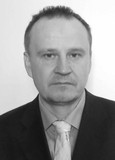Dependence of the state of metabolism on the time of cessation of sports activities of former athletes
Keywords:
detraining, metabolism.Abstract
Objective of the study was to study the main indicators of metabolism in the blood plasma of former athletes, depending on the time of completion of sports activities.
Methods and structure of the study. The study involved 24 former male athletes, with various sports specializations, qualifications from III adult category to Candidates for Master of Sports, aged 19-29 years. Depending on the time of completion of an active sports career, former athletes were divided into two groups: those who completed sports for a period of up to two years and more than two years. The control group consisted of untrained men of the same age. Indicators of protein, carbohydrate, lipid, purine metabolism and oxidative balance were studied in blood plasma.
Results and conclusions. The initial post-sport period is characterized by the predominance of catabolic processes (manifested in the form of a significant increase in the concentration of urea, medium molecular weight peptides, uric acid), carbohydrate metabolism disorders (a significant increase in glucose levels), lipid metabolism (a significant increase in total cholesterol, triacylglycerols) and oxidative balance in the form of accumulation TBA-active products against the background of a trend towards a decrease in total antioxidant activity. In the late post-sport period, there were no significant differences from the examined control group in terms of the studied indicators.
The initial post-sport period is characterized by an unfavorable change in the indicators of all types of metabolism, followed by a reverse trend in the late post-sport period. A comprehensive study of key metabolic indicators is a reliable criterion for diagnosing the development of a state of detraining. Metabolic changes accompanying the development of the state of detraining are recommended to be taken into account in the interpretation of biochemical analyzes during the rehabilitation of former athletes.
References
Gabrielyan N.I., Lipatova V.I. Opyt ispolzovaniya pokazatelya srednikh molekul v krovi dlya diagnostiki nefrologicheskikh zabolevaniy u detey [Experience in using the indicator of average blood molecules for diagnosing nephrological diseases in children]. Lab. delo. 1984. No. 3. pp. 138-140.
Elikov A.V. Nekotoryye pokazateli svobodnoradikalnogo okisleniya i antioksidantnoy zashchity v eritrotsitakh byvshikh sportsmenov [Some indicators of free radical oxidation and antioxidant protection in the erythrocytes of former athletes]. Sportivnaya meditsina: nauka i praktika. 2021. Vol. 11. No. 3. pp. 12-17.
Zakharyeva N.N., Sergeeva E.G. Rol lipidnogo profilya v otsenke funktsionalnogo sostoyaniya sportsmenov [The role of the lipid profile in assessing the functional state of athletes]. Moscow: OntoPrint publ., 2021. 76 p.
Kamyshnikov V.S. Kliniko-biokhimicheskaya laboratornaya diagnostika [Clinical and biochemical laboratory diagnostics]. Reference book. In 2 volumes. 2nd ed. Minsk: Interpressservis publ., 2003. 953 p.
Kontorshchikova K.N. Perekisnoye okisleniye lipidov v norme i patologii [Lipid peroxidation in normal and pathological conditions]. N. Novgorod, 2000. 24 p.
Lubysheva L.I., Nazarenko L.D. Aktualizatsiya problem sotsialnoy adaptatsii i detrenirovannosti sportsmenov posle zaversheniya sportivnoy karyery [Actualization of the problems of social adaptation and detraining of athletes after the end of a sports career]. Fizicheskaya kultura: vospitaniye, obrazovaniye, trenirovka. 2020. No. 1. pp. 2-5.
Sherstyuk S.A., Kapilevich L.V., Sherstyuk A.A. Gemodinamicheskiye kharakteristiki rabotosposobnosti sportsmenov s uchetom vegetativnoy regulyatsii [Hemodynamic performance characteristics of athletes with regard to vegetative regulation]. Teoriya i praktika fizicheskoy kultury. 2021. No. 4. pp. 55-57.
Carmody S., Anemaat K., Massey A. et al. Health conditions among retired professional footballers: a scoping review. BMJ Open Sport & Exercise Medicine. 2022. No. 8. e001196.
Lemez S., Baker J. Do Elite Athletes Live Longer? A Systematic Review of Mortality and Longevity in Elite Athletes. Sports Medicine. 2015. Open 1. pp. 1-14.
Nikolić T., Zbućnović S., Ujsasi D., Milić Z The Influence of Professional Sport on Changes in the Athlete’s Cardiovascular System After the end of Career. Sports science and health. 2021. V. 22. No. 2. pp. 231-236.


